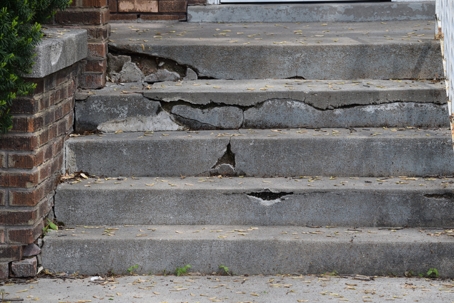Facilities management plays a crucial role in creating and maintaining safe environments for workers, visitors, and anyone who interacts with a building or space. It involves coordinating the physical workplace with the people and work of an organization.
Poor facilities management can significantly increase the risk of accidents and injuries.
Effective facility management ensures that all facility components function correctly, reducing the likelihood of accidents and injuries. In West Virginia, where industries such as mining, manufacturing, and healthcare thrive, proper facilities management is not just a luxury but a necessity.
The Human Cost of a Hazardous Facility
The cost of accidents extends beyond the immediate medical expenses. Victims often face lost wages, legal fees, increased insurance costs, and property damage. These financial burdens can be overwhelming for the injured individual and their families, especially when coupled with long-term impacts like emotional trauma, potential disability, and effects on family and personal life.
Common causes of accidents due to poor facilities management include:
- Slips & falls: These are among the most common accidents and can occur due to inadequate floor maintenance, such as wet, slippery, or uneven surfaces. The absence of non-slip mats or traction devices, combined with poor lighting, can further exacerbate the issue.
- Tripping hazards: Cluttered walkways or work areas, damaged or loose flooring, and pathway obstructions can easily lead to tripping incidents.
- Object impacts: Accidents involving falling objects, whether from fixtures, equipment, or improperly stored materials, pose a significant risk. Proper storage and handling of heavy items are essential to prevent such incidents.
- Fire hazards: Outdated or malfunctioning fire prevention systems, improper storage of flammable materials, and a lack of fire safety training are key factors that can lead to devastating fires.
- Electrical hazards: Faulty wiring, overloaded circuits, and a lack of grounding or insulation can result in electrical accidents, which are often severe and life-threatening.
Liability in injury cases caused by inadequate or poor facility management typically falls on the property owner or the organization responsible for the facility. These parties must maintain a safe environment for all occupants, which includes regular inspections, maintenance, and adherence to safety regulations.
If it can be proven that negligence occurred—such as failure to address known hazards or to implement proper safety measures—those responsible may face legal repercussions and be held accountable for any injuries sustained on the premises.
Prevention Strategies
Remember, property owners and managers in West Virginia have a duty to ensure their premises are safe for workers, customers, and other visitors. This involves a proactive approach to facilities management.
Tips for effective facilities management practices that may help prevent accidents include:
- Conduct regular inspections and maintenance.
- Provide comprehensive safety training for all employees.
- Develop and implement emergency preparedness plans.
- Ensure compliance with all relevant safety regulations.
- Perform risk assessments and take measures to mitigate identified risks.
What to Do If You Are Injured
If you or a loved one is injured due to facility management negligence, it is crucial to take immediate action. First and foremost, seek medical attention as soon as possible, even if the injuries seem minor. Your health and well-being should always be the top priority. Next, consult with a personal injury attorney, even if the injury occurred at work. An experienced attorney can guide you through your legal options and help you understand your rights.
Katz Kantor Stonestreet & Buckner, PLLC has been proudly serving Mercer County since 1931, and we are ready to assist you as well. If you have been injured due to poor facilities management, reach out to our law firm to schedule a consultation and discuss your options.

